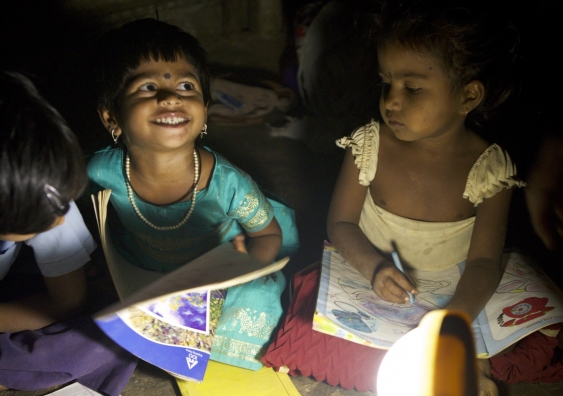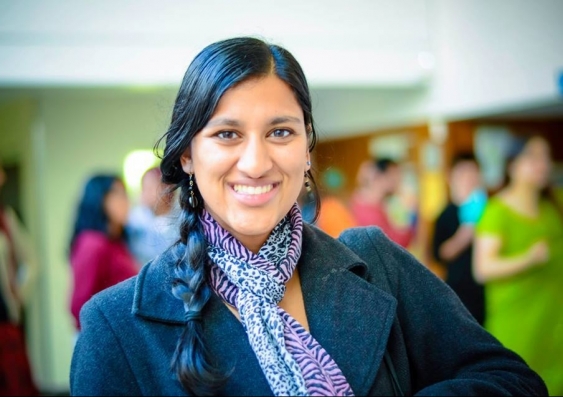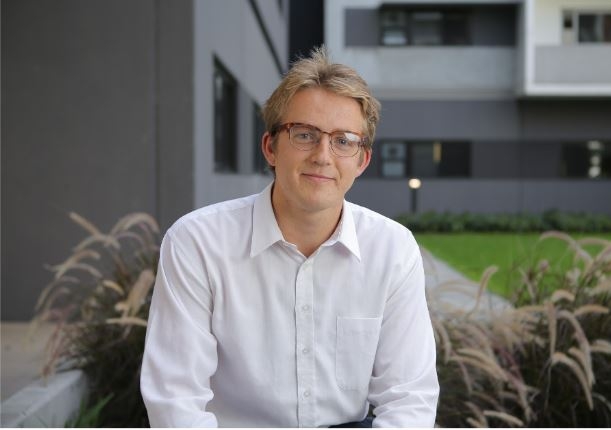Pollinate Energy recruits students to join 2017 Fellowship program
Four UNSW students are heading to India next year as Pollinate Energy Fellows to help bring light to some of the country’s poorest communities.
Four UNSW students are heading to India next year as Pollinate Energy Fellows to help bring light to some of the country’s poorest communities.

UNSW students Medhavi Gupta, Sam Johnson, Carla Frankel and Jessica Vorreiter are among 18 students and graduates heading to India as Pollinate Fellows in January, charged with bringing light and sustainable products to some of the country’s poorest citizens.
Co-founded by six university graduates, including UNSW alumni Monique Alfris and Kat Kimmorley, Pollinate Energy is a social enterprise that works to combat the effects of ‘energy poverty’ in India’s slum communities and empower local Indian entrepreneurs.
The student Fellows work with local volunteers, known as ‘Pollinators’, to sell solar lights and smoke-free cooktops to replace kerosene lamps, whose harmful fumes are estimated to kill more than 1.5 million people per year.

Commerce and Accounting grad Medhavi Gupta, "pollinate gives you the opportunity to immerse yourself into another world". Photo: Supplied.
Following a “confidence boosting” experience, Medhavi Gupta, a second-time Fellow and recent commerce and accounting graduate, has re-joined the program after two years.
“As someone who aspires to a career in social change and development, I am always on the lookout for opportunities where I can both make an impact and develop useful skills and experiences,” says Medhavi.
“The fellowship provides an opportunity to get your hands dirty and work on a real project, which improved my understanding of the lives of marginalised people in Indian society”.
Medhavi was also able to utilise skills acquired during her commerce degree, including developing sales strategies with the Pollinators.
“We worked with a Pollinator to help clear his debts, visiting slums with him in order to enforce the sales agreements, as well as training him in conflict management and smart device usage,” Medhavi says.
Fifth-year environmental engineering students Carla Frankel and Jessica Vorreiter heard about the merits of the program and immediately joined up.
“I heard about Pollinate Energy from my involvement with Engineers Without Borders,” says Frankel. “I think this experience will give me an insight into a culture different from what I am used to which is always a useful skill when working in multinational companies.”
“Pollinate has a clear strategy which aims to solve social, health, economic and environmental problems all at the same time with one astute solution,” says Vorreiter. “So the fact that Pollinate is a social enterprise with the aim of becoming self-sufficient mattered greatly to me.”

Fifth-year civil engineering student Sam Johnson is preparing for his trip to India in January. Photo: Supplied
For civil engineering student Sam Johnson, applying for the program satisfied his ambition to work with marginalised communities and examine the structural competencies of slum residences.
Essential infrastructure, such as water and energy, are the foundations of ensuring a high quality of life, he says.
“I'm not so interested in building a new five-star hotel in Sydney - I am more interested in the provision of basic infrastructure for citizens in developing countries who would experience vast improvements in the quality of their life.”
Since its inception in 2012, Pollinate Energy has supplied over 1,900 slum communities with sustainable products and now operates across four key locations in India -- Bangalore, Hyderabad, Kolkata and Lucknow. Pollinate Energy’s fellowship programs runs for 3-4 weeks in January and July of each year.
Visit the Pollinate Energy website, for more information.